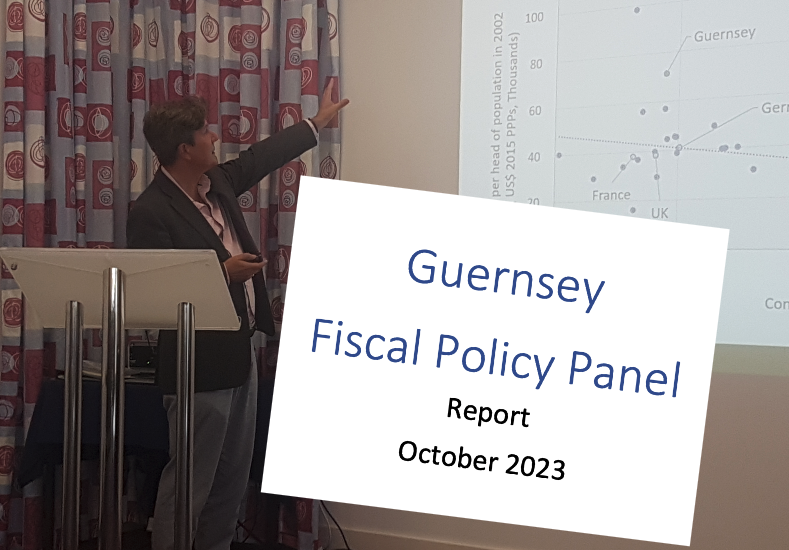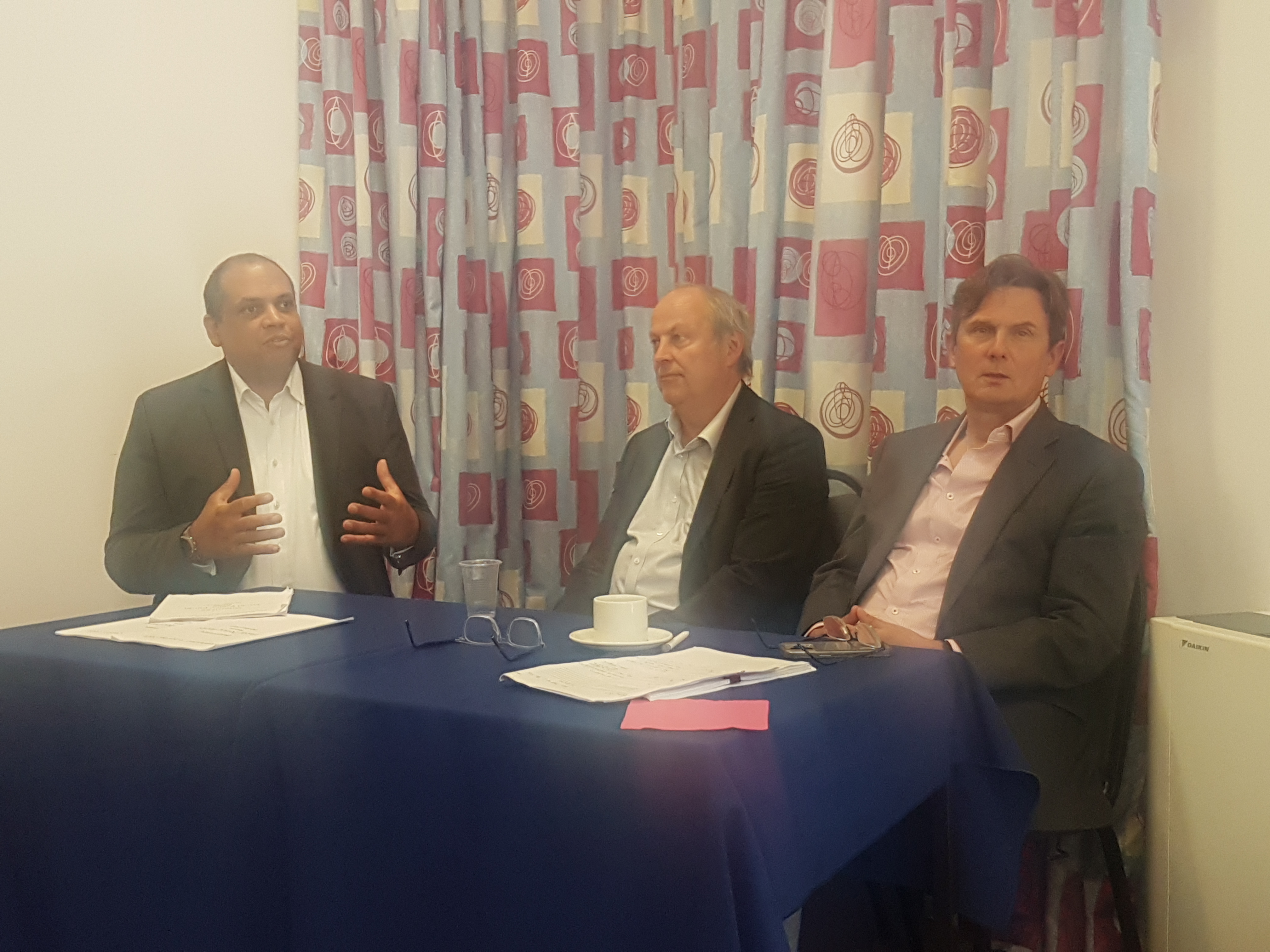


Guernsey's fiscal policies are not sustainable and GST won't solve all of our money problems, according to a recently published report.
A panel of economic experts have penned the Guernsey Fiscal Policy Panel report ahead of the next States debate on the Funding and Investment Plan.
Chaired by Dr Matthew Agarwala, with Professor Francis Breedon and Dr Andy Sloan - the panel members were only appointed in August and were asked to give an independent assessment of the States current fiscal policies and what risks and opportunities there are.
The Funding and Investment Plan (F&IP) which they were reviewing was only published early in September meaning they've had a month to look over that, give their opinions with evidence, and clarify whether they think the options presented as solutions to the island's fiscal challenges are appropriate, viable and sustainable.
In the report - which can be read in full HERE - the panel said the F&IP will go some way to settling Guernsey's financial problems but it doesn't go far enough.
The panel also raised concerns about Guernsey's historic lack of investment in its infrastructure.

Pictured (l-r): Dr Matthew Agarwala, Professor Francis Breedon, and Dr Andy Sloan.
The three men agreed that Guernsey’s economic position, based on a high income, low growth scenario, with a single dominant sector (finance), and an ageing population, warrants a cautious fiscal stance.
However, they've also said that "the less aggressive fiscal action is now, the more costly it will become in the future".
They looked at the three options given by P&R for the States to debate next week:
Option 1: Borrow nothing, but possibly use the remnants of the bond worth £160m. Spend up to £95m on other capital projects including purchasing housing and developing infrastructure on the Bridge and health and community services. Stop all other major projects such as the hospital modernisation project, post-16 campus and inert waste.
Option 2: Borrow £200m and release cash from the health service reserve, currently totalling £3.5m, to help fund the hospital project as part of increased capital project spending of up to £345m, which would also include the Les Ozouets redevelopment.
Option 3 (P&R’s preferred option): Borrow £350m to help fund all agreed capital projects worth up to £425m and £2.5m worth of social and community initiatives, repaying the debt through a reformed tax and social security system. That will include elements common in the Committees’ defeated tax package; a broad-based goods and services tax, a lower band of income tax for earnings up to £30,000 per year, a raised personal income tax allowance, personal allowances for social security contributions, and inflation-mitigating increases to States benefits.
The Fiscal Policy Panel said none of the above three options, proposed by P&R, will do enough to meet the growing financial burden facing the island, but of the three, Option 3 "goes a considerable distance toward rectifying the situation and means any necessary further adjustments may be relatively small and can be implemented after due consideration of the F&IP’s impact".
The panel members were all keen to make it clear that they aren't backing any of the options and they are not advocating the implementation of a goods and services tax but they also made it clear that Guernsey's current fiscal policies are not sustainable and the "financial reserves are on a downward path, investment in the capital stock is very low by international standards and the substantial shortfall in revenues has recently grown".
With a strong sense of public feeling against GST still, the panel has acknowledged it may not be popular but necessary.
They also urged politicians and the public to look at "tax systems not an individual tax".
"A regressive tax can be part of a progressive tax system," said Dr Agarwala.
Tax reform and borrowing seen as as prime way to make island sustainable
GST will not damage small businesses, P&R says
Case studies re-published in continued GST push
Comments
Comments on this story express the views of the commentator only, not Bailiwick Publishing. We are unable to guarantee the accuracy of any of those comments.